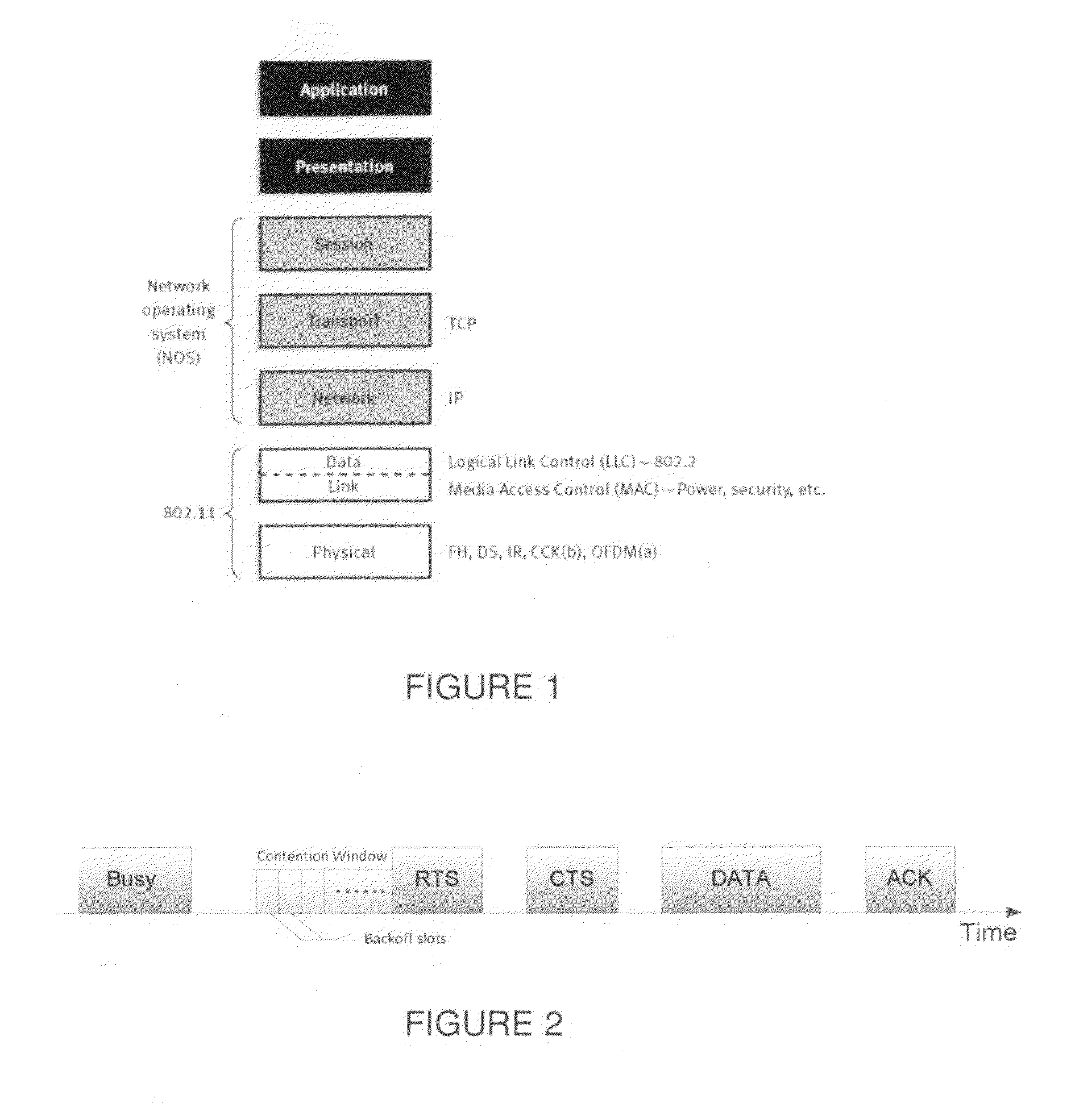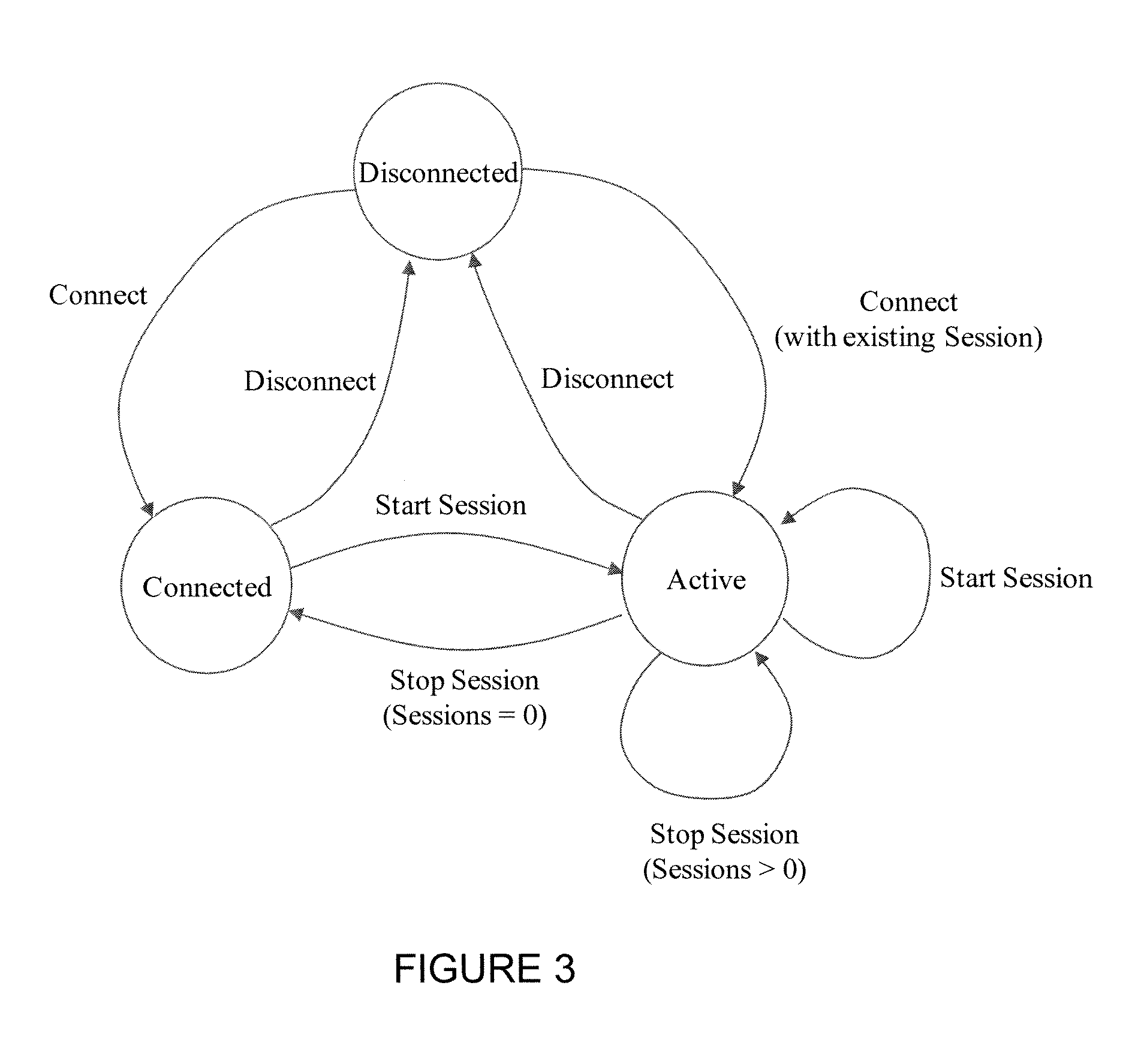Relieving congestion in wireless local area networks
a wireless local area network and congestion relief technology, applied in data switching networks, frequency-division multiplexes, instruments, etc., can solve problems such as the inability of clients to simultaneously access (collisions), the degradation of client quality of experience (qoe), and the inconvenience of users, so as to maximize the potential achievable data rate of each client and relieve network congestion problems
- Summary
- Abstract
- Description
- Claims
- Application Information
AI Technical Summary
Benefits of technology
Problems solved by technology
Method used
Image
Examples
Embodiment Construction
[0066]An embodiment will now be described by way of example, referring to Wi-Fi, although it is to be understood that the embodiment is also applicable to other types of WLAN operating on the same principles.
[0067]Methods of the embodiment are based on centralized system architecture, which in a simplified form is shown in FIG. 4. A plurality of APs 20, 21 and 22 are deployed in a WLAN to form overlapping hotspots within an enterprise, for example. A central association server 30 is connected to the APs by broadband cable for example (in practice, at least one network switch would be interposed between the central association server and APs). The central association server controls the WLAN at an enterprise level, for example. Thus, different WLANs would normally each have their own central association server. The central association server may have various functions apart from performing the method; for example it may perform other load balancing operations outside the scope of the...
PUM
 Login to View More
Login to View More Abstract
Description
Claims
Application Information
 Login to View More
Login to View More - R&D
- Intellectual Property
- Life Sciences
- Materials
- Tech Scout
- Unparalleled Data Quality
- Higher Quality Content
- 60% Fewer Hallucinations
Browse by: Latest US Patents, China's latest patents, Technical Efficacy Thesaurus, Application Domain, Technology Topic, Popular Technical Reports.
© 2025 PatSnap. All rights reserved.Legal|Privacy policy|Modern Slavery Act Transparency Statement|Sitemap|About US| Contact US: help@patsnap.com



